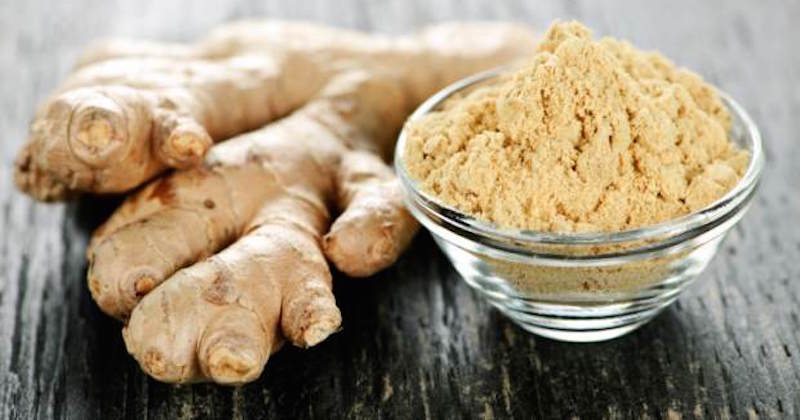Updated: 10/25/18
Dietary Tips & Health Benefits of Ginger
Ginger is a popular ingredient in cooking, especially in Asian and Indian cuisines. Fresh or dried, ginger can be used to easily flavor foods and beverages without adding salt or sugar. Ginger has also been used for thousands of years for medicinal purposes.
Ginger root has been used to relieve nausea, loss of appetite, motion sickness and pain. The root or rhizome (underground stem) of the plant can be consumed fresh, powdered, dried as a spice, in essential oil form, or even as a juice. Cardamom and turmeric come from the same family and these spices can be commonly found in India, Jamaica, Indonesia and Australia. Ginger can also be used to make tea, added to curries and savory dishes or dried/crystallized in sweets and other baked confections. It contains hundreds of compounds and metabolites, some of which may contribute to health and healing. 6 health benefits of ginger:

Digestion
Nausea
Cold and Flu Relief
Pain Reduction
Inflammation
Cardiovascular Health
Recipe Tips for Ginger
When buying fresh ginger, look for a root with smooth, taut skin. It should be wrinkle free and have a spicy aroma. Store your fresh ginger in a tightly wrapped bag in the refrigerator or freezer. Peel and grate what you need prior to use. In most recipes, one-eighth of a teaspoon of ground ginger can be substituted for one tablespoon of fresh grated ginger. Try it in homemade salad dressing, steep fresh peeled ginger in boiling water for a soothing ginger tea or pair it with seafood, oranges, melon, pork or chicken.

